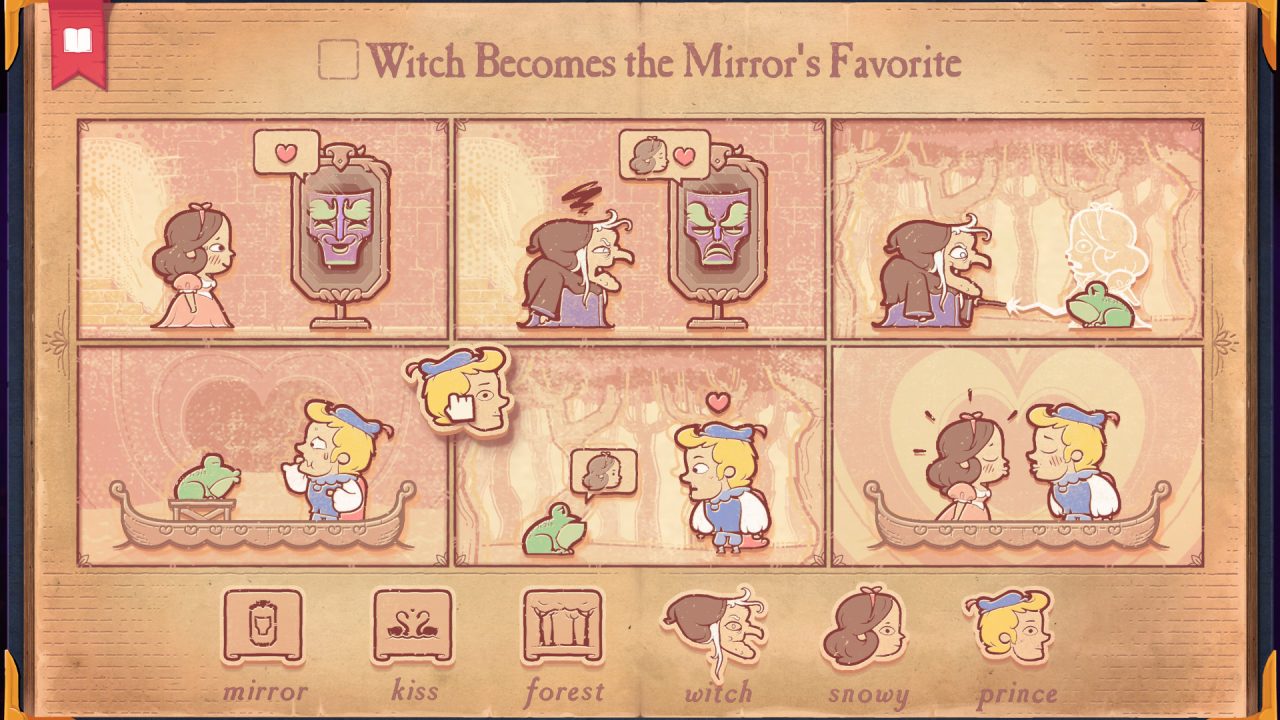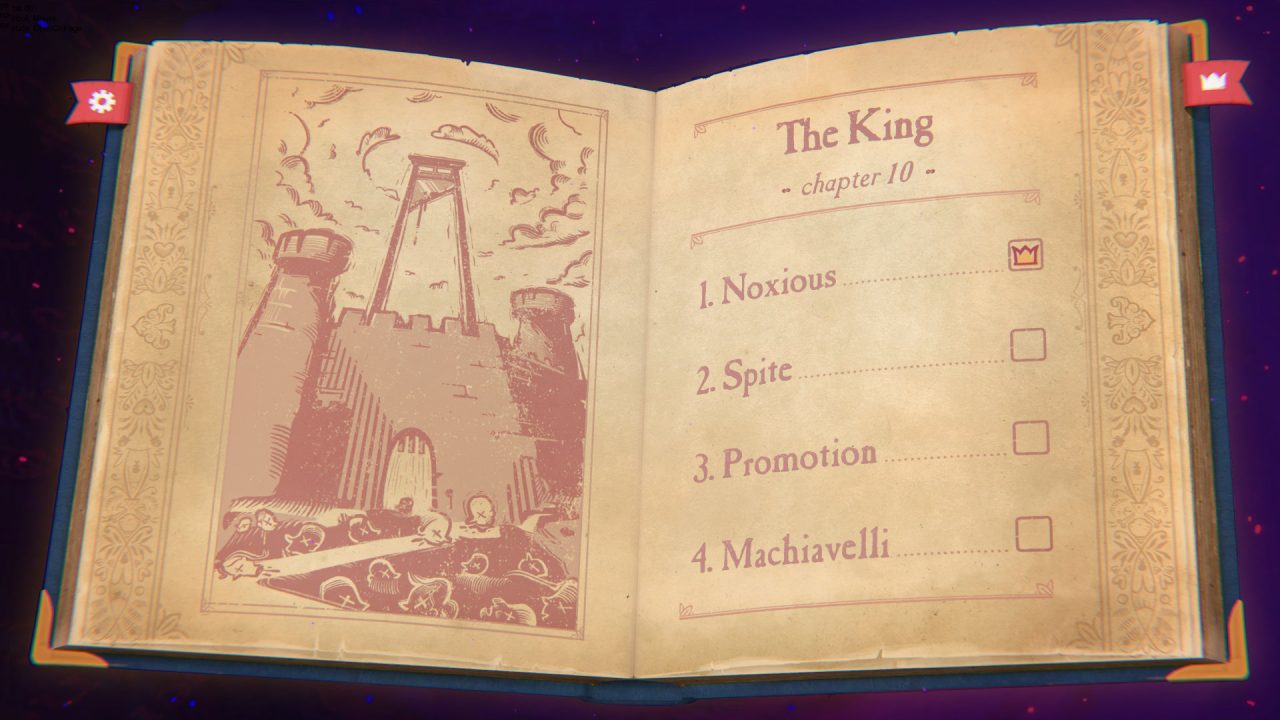When folks think of storytelling, words generally come to mind. Sure, whimsical artwork or cinematography with a melodious or adrenaline-infused soundtrack walk in tandem, but writing and the spoken word are king. Though sometimes, body language or a cheeky smirk can say more than any set of words can convey. Storyteller aims to make this case with its almost completely nonverbal puzzle-based snippets of life in a fantastical world of love, misery, and death.
Storyteller tasks the player with filling in the blanks of a book’s pages to tell coherent, nonverbal stories. Once this job is complete, a mysterious ceremony will take place to prove the player’s worth as a non-wordsmith. To do so, players navigate chapters on each page of the book, each offering a few premises. When players click a theme, a short description plainly states what story the players must tell given the tools provided.
Each puzzle hosts four, six, or eight empty panels with draggable labeled icons along the bottom of the page. These icons include environments and people. Each panel needs an environment, and each environment can hold up to three people depending on what that environment is. Once the story is completed, players earn a crown and a subtle fanfare, and then it’s on to the next page.

Let me offer an example. In one story, players may be tasked to have the butler arrested. The game provides the setting of a living room, tools such as a gun, and characters like the butler, a duke, a duchess, and a detective. Without any other direction, players drag and drop each component until the story is told. This example seems straightforward, but not all characters are the same, and some have established relationships or duties. These unique traits impact how the character reacts to the room they’re in and how they interact with other characters placed alongside them. To complicate the puzzle further, what happened before that panel also impacts how the characters act. Other puzzles will task the player to indulge in benign tasks like poisoning loved ones and beheading usurpers to the throne.
Most of the more than fifty puzzles are relatively easy to solve through trial and error, while a handful took me a decent amount of time. Overall, I was able to beat the game in two hours with a little help from my wife on one particular grizzly puzzle I had skipped much earlier (witches turning people into toads isn’t my thing, I guess). Easy or not, Storyteller exudes charm.

A touch grainy with a uniquely cartoony art style, Storyteller makes each puzzle a joy to interact with. Even after completing the game, I was motivated to mess around with earlier puzzles just to see what weird interactions or reactions I could evoke through odd combinations. Every character reacts with distinct emotion and simple animations that don’t overcomplicate the visuals; just enough is going on to keep the player’s attention and maintain focus.
Aside from the whimsical visuals, the sound effects capture the feeling of the game with a quick, low-tone stroke of a cello when someone dies or a cute gasp when a character is horrified. Since this is essentially a click-and-drag game, the controls don’t interfere with gameplay, though turning pages to get to a later or earlier chapter feels needlessly laborious.
Storyteller isn’t a game that’s going to capture your imagination for long, but its atmosphere and unique game design make each bite-sized adventure the kind of short-term joy you might be looking for. Not every game needs to be a steak dinner; sometimes a cookie is the fix we need. Just hope an angry lover hasn’t poisoned that cookie.


